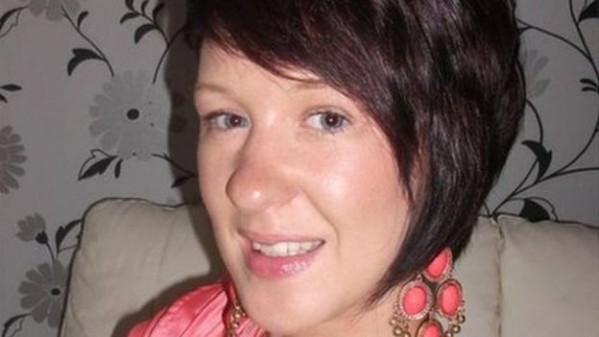
Claire Kelly from Claudy was killed in a car being pursued by police in 2011
THE Police Ombudsman’s office has denied claims it concealed information over its investigation into a car crash which killed a woman.
Claire Kelly, 20, died after a car crash in Claudy, Co Derry, in December 2011.
Two police officers were disciplined last year for speeding during a pursuit of the car
On Monday, Claire’s mother abandoned a legal challenge to the decision not to prosecute the officer who gave chase.
At the High Court in Belfast, Denise McAuley’s solicitor accused the Ombudsman of keeping reports into the incident secret and vowed to refer the case to the First and Deputy First Ministers.
Her daughter Claire had been a passenger in a Renault Clio driven by Kevin Brolly and pursued by police after speeding off from a checkpoint in the village of Feeny.
The car later crashed into a field and overturned, trapping Claire inside. She later died in hospital.
Drink driver Brolly, 26, from Rannyglass in Dungiven, pleaded guilty to causing her death by careless driving and having no insurance.
He was handed a three-year sentence and disqualified from driving for five years.
An Ombudsman’s report found police officers were driving at 81 mph through a 30 mph zone in an unmarked police vehicle with no sirens or flashing lights.
The report further identified no causal link between the way the police car was driven and the woman’s death.
Based on the contents of a letter from the Ombudsman’s office setting out the findings, Mrs McAuley’s lawyers urged the Public Prosecution Service (PPS) to review its decision not to prosecute Officer A for dangerous driving.
A judicial review of the outcome was set to get underway on Monday but Mrs McAuley’s barrister, Michael Forde, instead asked the court to dismiss the challenge based on new information discovered at “the eleventh hour”.
He said the PPS has now disclosed up to four previous unseen reports from the Ombudsman’ office, three containing recommendations from three separate investigators.
One recommended Officer A be prosecuted for dangerous driving, another for careless driving and speeding, while the senior investigator recommended no prosecution at all, the court heard.
A fourth report containing forensic analysis determined the police car may actually have been as low as 62mph, with no certainty about when it reached that speed.
Mr Forde said his client wanted to know why the Ombudsman’s office submitted three separate investigators’ reports to prosecutors and allegedly hid this from her.
The court was told that the letter to Mrs McAuley wrongly implied the watchdog body believed Officer A should be prosecuted.
Outside court, her solicitor, Stephen Atherton, insisted he will be seeking urgent answers.
“What we have uncovered is a culture of secrecy and concealment.
“These revelations are matters of significant public importance, and it’s my intention to refer this to the Office of the First Minister and Deputy First Minister.”
A spokesman for the Police Ombudsman denied any attempt to conceal information.
“There was only one report submitted to the prosecution service, which included the different views of a number of people involved in the investigation.
“This Office does not make public information prior to a possible prosecution and did not do so in this case.”
Tags:




